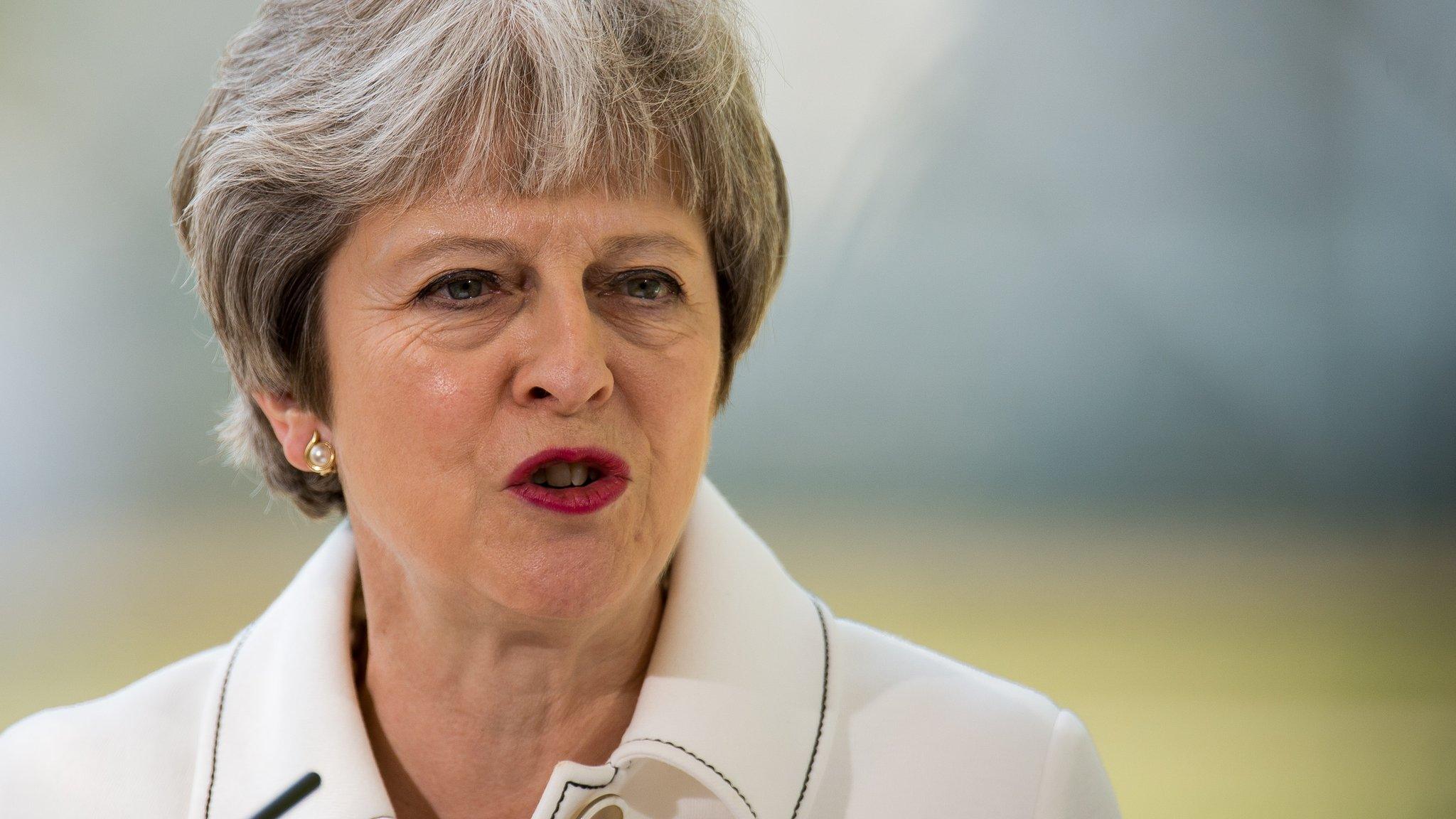Aide: After Brexit science is No 10's top priority
- Published
- comments
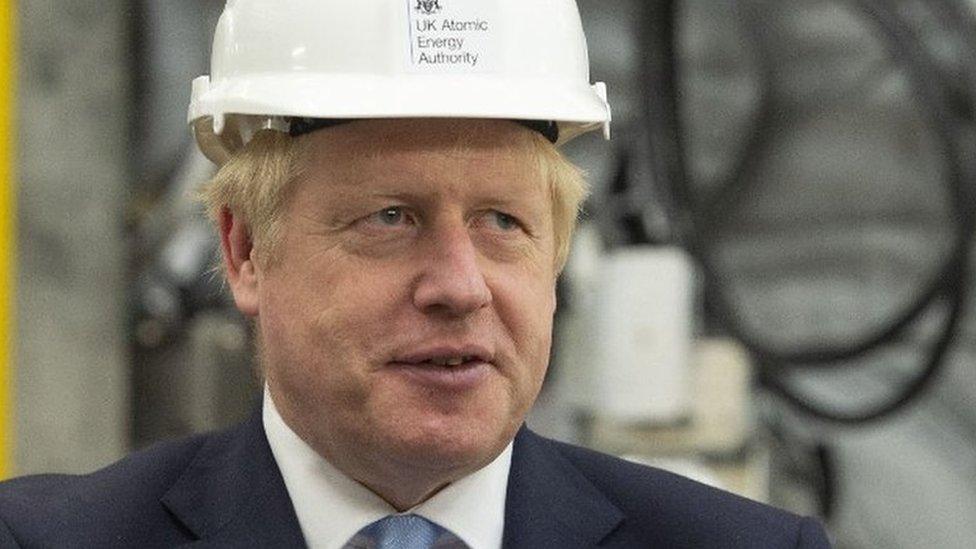
Boris Johnson: "I want the lifesaving cancer treatments of tomorrow to say 'discovered and made in Britain'"
The prime minister says he wants science and technology to fuel a "vibrant" post-Brexit economy.
Boris Johnson made his pledge as he announced a fund to help firms commercialise medical breakthroughs.
A source said that science funding was the number two priority - after Brexit - of Mr Johnson's chief adviser Dominic Cummings.
But critics say the damage to research caused by a no-deal Brexit would outweigh any benefits.
Mr Johnson has given details of a £200m fund which will be matched by a £400m private sector investment. Although relatively modest, it is the latest in a series of positive statements about science emerging from Downing Street since Mr Johnson has taken office.
He said that although the UK has a proud history of scientific discovery, too often it was commercialised by other countries.
"Today I am changing that. I want the lifesaving cancer treatments of tomorrow to say 'discovered and made in Britain'," said Mr Johnson.
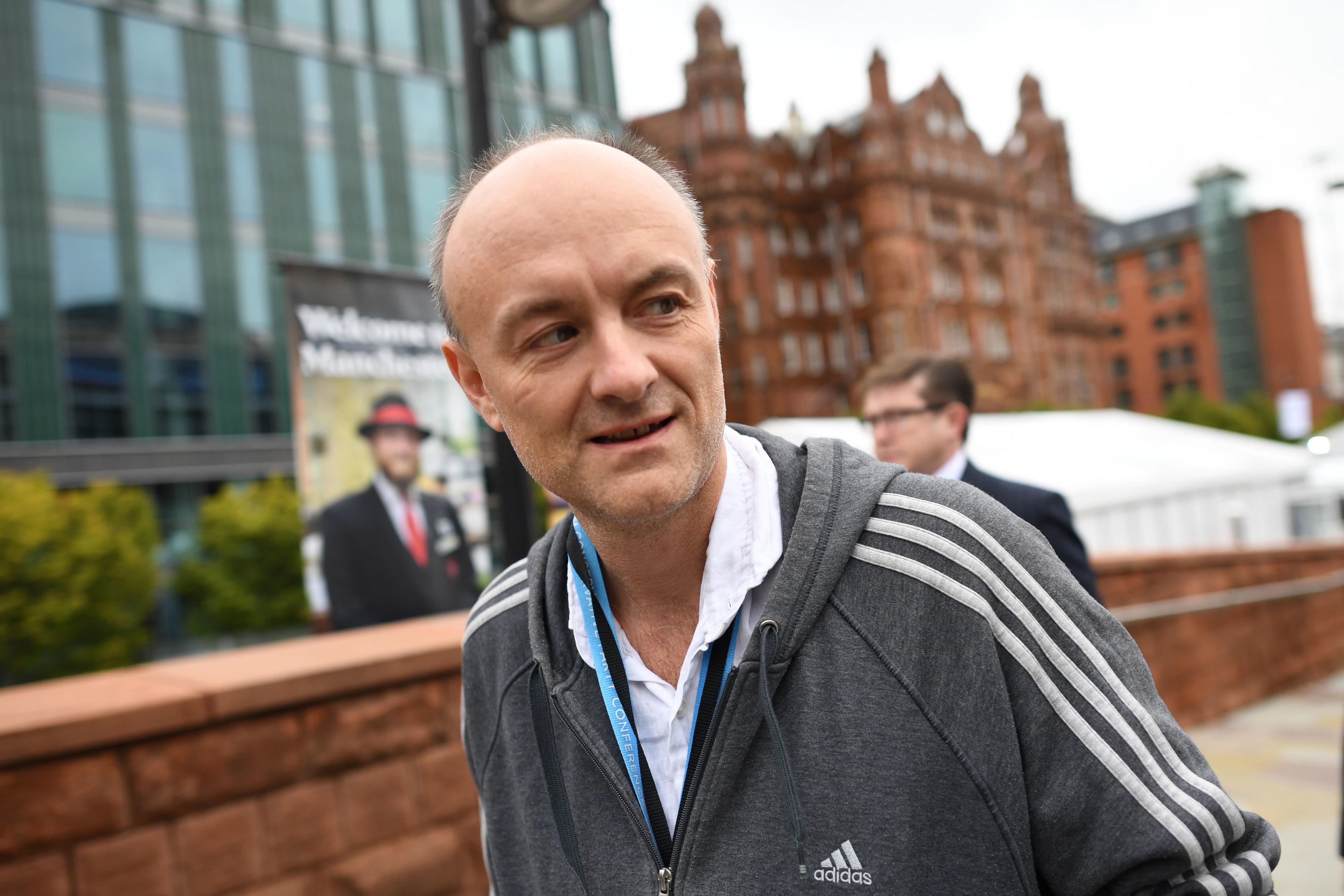
Dominic Cummings: "The government spends about £250bn a year with extreme systematic incompetence"
Stian Westlake is a former special adviser to three science ministers including the PM's brother, Jo Johnson. He said much of the "energy" for driving science on to Mr Johnson's agenda came from his chief adviser, Mr Cummings.
"Those I have spoken to have told me that Dom Cummings' number one priority is Brexit. His number two priority is science and technology funding," he said.
Mr Westlake said Mr Cummings was directly involved in these announcements.
"This is why you are seeing some of the 'burning injustices' in science (such as the visa issue for researchers) being dealt with relatively quickly," he said.
Since 2010, successive governments have pledged an additional £7bn to UK R&D by 2022. Former Chancellor Philip Hammond also set a target to treble government spending by a further £21bn so that total public and private research spending would increase from 1.7% of GDP to 2.4% by 2027.
Prof James Wilsdon of Sheffield University, UK, said the indications so far suggested Mr Johnson was prepared to build on the pro-science policies of the previous Conservative and coalition governments.
"The mood music and what has come out of the Johnson government on the science base is, if anything, more enthusiastic than it was from the May and Cameron governments," he said.
'Supercharge' science
In his first speech as Prime Minister, Mr Johnson cited the life sciences sector and technology as one of the UK economy's "enormous strengths".
Last week at the UN General Assembly, he railed against "anti-scientific pessimism", referring to those opposed to scientific progress. And, most significantly, he vowed to "supercharge science" by cutting the red tape for researchers wanting to work in the UK.
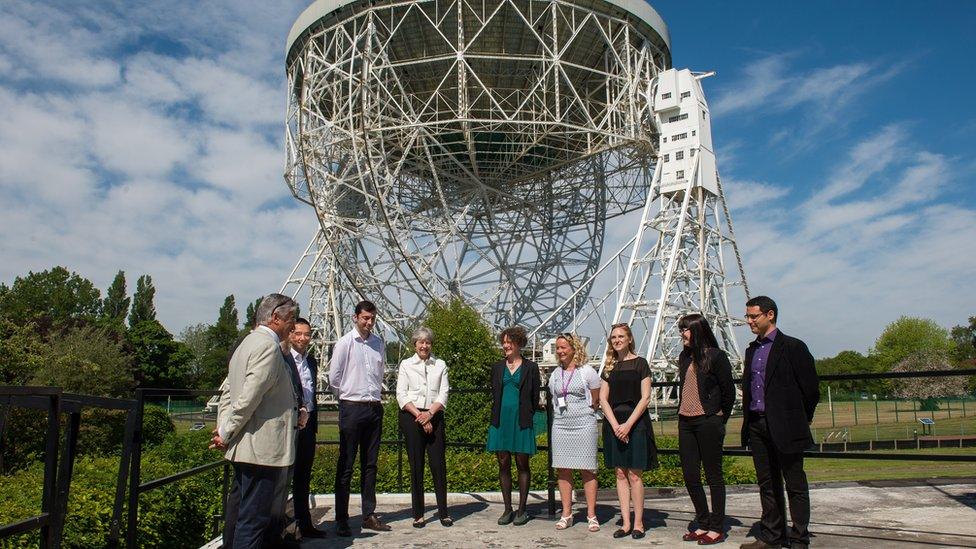
Boris Johnson is said to be "more enthusiastic" about science even than previous governments
But Mr Cummings' interest may be a mixed blessing for some who were happy with the relatively recent restructuring of research funding. This involved merging a diverse group of funding sources into one large research council called the UK Research and Innovation Agency (UKRI).
In his blog, Mr Cummings writes about how small teams are more creative, and in his view underfunded.
"The government spends about £250bn a year with extreme systematic incompetence. If we 'just' applied what we know about high performance project management and procurement we could take savings from this budget and put it into (US-style) high-risk-high-payoff visions including creating whole new fields," he writes.
He calls for bureaucracy to be removed from the current system, a return to a system where universities and researchers are funded directly and guaranteed work visas for spouses that would make the "UK a magnet for talented young scientists".
Mr Johnson has already promised Mr Cummings' visa suggestion, seemingly drawing words from the blog when he stated he wants to "turn the UK into a kind of supercharged magnet, drawing scientists like iron filings from around the world".
'Small beer'
His ideas for less bureaucracy and funding for small groups may not be completely in line with the corporate way in which UKRI operates according to Prof Wilsdon.
"A large state agency is not naturally aligned with the ideological and intellectual traditions on which someone like Dominic Cummings would draw," he said.
But Prof Wilsdon added that many in the scientific community believed the limited announcements by the PM to date were small beer compared to the billions of pounds and access to research the UK receives under the current arrangement with the EU.
"Politicians and advisors are drawn to big flashy totemic announcements as a way of demonstrating their commitment to research," he said.
"But at the same time, we need to continually reinforce a sustainable, healthy and balanced research system with less eye-catching, headline grabbing funding sources that are the actual glue that holds the system together."
Follow Pallab on Twitter, external
- Published8 August 2019
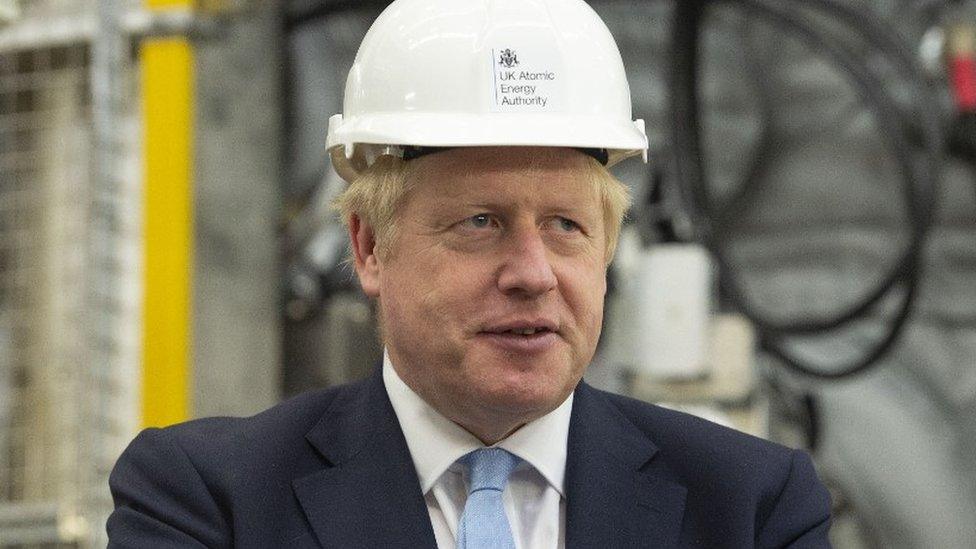
- Published29 May 2019

- Published21 May 2018
